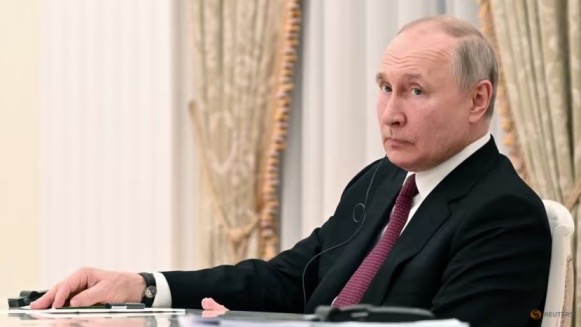Russian President Putin meets with Bosnian Serb leader Dodik in Moscow on May 23, 2024.
(Photo: Sputnik/ Alexey Filippov/ Pool via REUTERS)
The Kremlin’s response to Vadym Skibitsky’s claims regarding President Vladimir Putin being targeted on Ukraine’s kill list indicates the seriousness with which they view the situation. The Kremlin emphasized that Russia’s security services were fully aware of their responsibilities and prepared to take necessary actions to protect Putin and other Russian officials mentioned as potential targets.
Skibitsky’s interview shed light on Ukraine’s alleged desire to assassinate Putin due to his perceived role in coordinating and influencing the course of the war. This revelation further strained the already tense relations between Russia and Ukraine. Skibitsky’s assertion that individuals would be held accountable for their actions suggests that Ukraine’s military intelligence is actively pursuing measures to execute their alleged plans.
While targeting Putin may be challenging due to his seclusion, Skibitsky noted that Putin had started appearing in public more frequently. This information adds an element of concern to the situation, as it implies that the Russian president may be more exposed to potential threats.
The Kremlin’s spokesman, Dmitry Peskov, addressed the issue of increased protection measures for Putin, affirming that the existing security arrangements were deemed adequate. However, the statement didn’t provide specific details about any enhanced security measures implemented in response to the perceived threat.
Moreover, Peskov used Skibitsky’s interview as an opportunity to justify Russia’s ongoing military operation in Ukraine. By characterizing Ukraine’s government as a “terrorist regime” and linking Skibitsky’s remarks to the military operation, the Kremlin aimed to bolster its narrative that its actions in Ukraine were defensive rather than aggressive.
The recent drone attack on the Kremlin, which was believed to be an attempt on Putin’s life, further heightened tensions. Although Kyiv denied any involvement, suspicions from US intelligence agencies regarding Ukrainian spies or military intelligence’s potential role in the attack add another layer of complexity to the situation. The investigation into the drone attack remains ongoing, and the findings may have significant implications for the already strained relations between Russia and Ukraine.
In conclusion, the Kremlin’s response to Skibitsky’s claims underscores the seriousness of the situation and the measures Russia’s security services are prepared to take to protect Putin and other officials. Skibitsky’s interview has added fuel to the already tense relations between Russia and Ukraine, with implications for the ongoing conflict.
The alleged desire to assassinate Putin and other targeted individuals raises concerns, despite the challenges involved in targeting the Russian president. The Kremlin’s use of Skibitsky’s remarks to justify its military operation in Ukraine and the unresolved investigation into the drone attack on the Kremlin further contribute to the complex dynamics between the two nations.
The revelations made by Vadym Skibitsky and the Kremlin’s response highlight the heightened tensions and deep distrust between Russia and Ukraine. The possibility of targeted assassinations and the alleged involvement of Ukrainian intelligence agencies further exacerbate the already volatile situation.
The international community closely watches these developments, with concern growing about the potential escalation of the conflict. Efforts to de-escalate tensions and find a peaceful resolution are crucial to avoiding further bloodshed and instability in the region.
As the situation unfolds, diplomatic channels and international mediation may play a pivotal role in preventing the situation from spiraling out of control. The responsibility lies not only with the involved parties but also with the international community to promote dialogue, foster understanding, and work toward a sustainable and peaceful resolution to the ongoing crisis in Ukraine.












